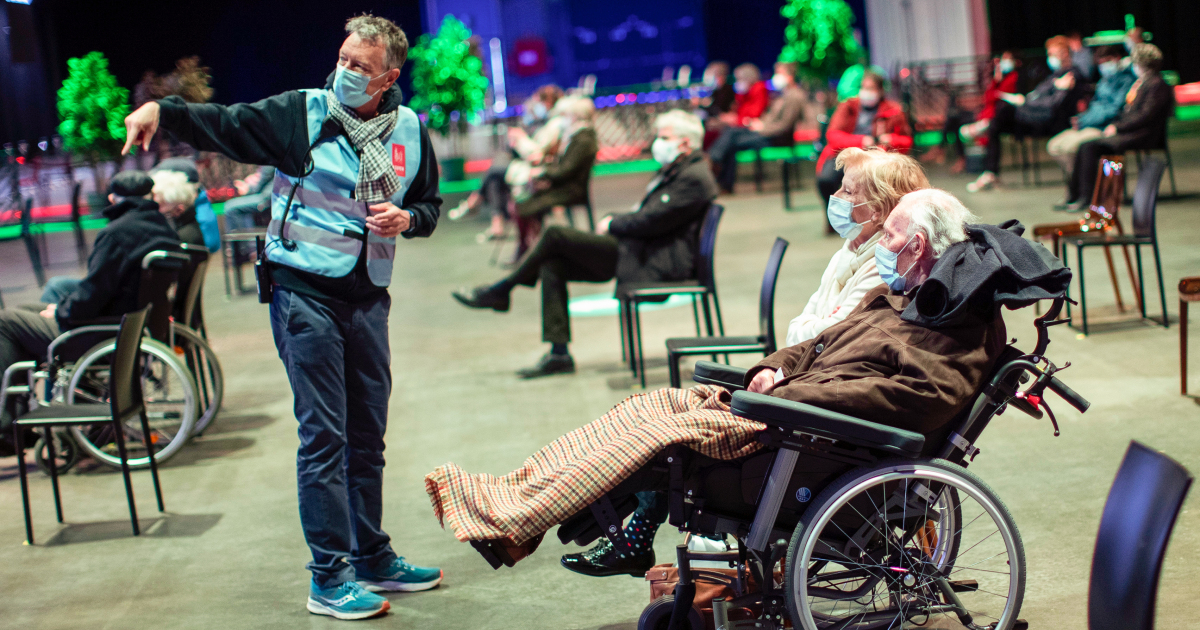This post may refer to COVID-19
To access official information about the coronavirus, access CDC - Centers for Disease Control and Prevention.

www.aljazeera.com
Europe’s COVID-19 vaccine rollout ‘unacceptably slow’: WHO
Just 10 percent of the region’s total population of 900 million have received one vaccine dose, UN health agency says.
International
The World Health Organization (WHO) has raised the alarm on Europe’s “unacceptably slow” rollout of COVID-19 vaccines as it warned of a “worrying” surge in coronavirus infections.
WHO Regional Director for Europe Hans Kluge said on Wednesday that the sluggish start to immunisation programmes across the continent was “prolonging” the pandemic.
“Vaccines present our best way out of this pandemic. Not only do they work, they are also highly effective in preventing infection,” he said in a statement.
“However, the rollout of these vaccines is unacceptably slow,” Kluge added. “We must speed up the process by ramping up manufacturing, reducing barriers to administering vaccines, and using every single vial we have in stock, now.”
WHO’s European region comprises 53 countries – including all 27 member states of the European Union, former EU member the United Kingdom, Russia, several Central Asian nations and Israel.
To date, just 10 percent of the region’s total population of 900 million have received one dose of vaccine, the United Nations health agency said. Only four percent have been fully inoculated.
Vaccine inequity
While a handful of countries such as Israel and the UK have high vaccination rates, many others have struggled to make headway.
EU member states, in particular, have been plagued by vaccine delivery delays, production bottlenecks and political blunders.
More broadly, richer nations are buying up and hoarding vaccines, the WHO suggested.
“Every high-income country in the region is vaccinating against COVID-19, while only 80 percent of upper-middle-income countries and 60 percent of lower- and lower-middle-income countries are,” it said.
Kluge said any countries in the region with excess doses should share supplies with the UN-backed COVAX scheme to deliver jabs to poorer nations or directly with countries in need.
“Not doing so is self-defeating,” he said.
UK-variant sweeps Europe
Kluge’s appeal came as the WHO’s regional emergency director for Europe, Dorit Nitzan, said the COVID-19 situation in Europe was now “more worrying than we have seen in several months”.
Five weeks ago, the weekly number of new cases in Europe had dipped to under one million, according to the WHO. But last week saw infection rates soar in the majority of countries in the region, with 1.6 million new cases recorded.
Amid the surge, the total number of deaths in Europe “is fast approaching one million and the total number of cases about to surpass 45 million,” it said.
The agency linked the rising caseload to a highly infectious strain of coronavirus first detected in southeast England last September – formally identified as B.1.1.7, but commonly referred to as the Kent or UK variant. This strain has now spread throughout most of Europe and become the predominant variant in the region.
“As this variant is more transmissible and can increase the risk of hospitalisation, it has a greater public health impact and additional actions are required to control it,” it said.
Nitzan also warned that if the virus continues to grip the world, further variants of concern may emerge.
“The likelihood of new variants of concern occurring increases with the rate at which the virus is replicating and spreading, so curbing transmission through basic disease control actions is crucial,” she said.
A total of 27 countries in the WHO’s European region are now in partial or full nationwide lockdown, according to the agency.
In the past two weeks, 23 countries have tightened physical distancing measures while 13 have eased restrictions, it said.
























































